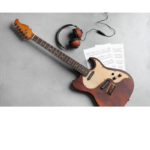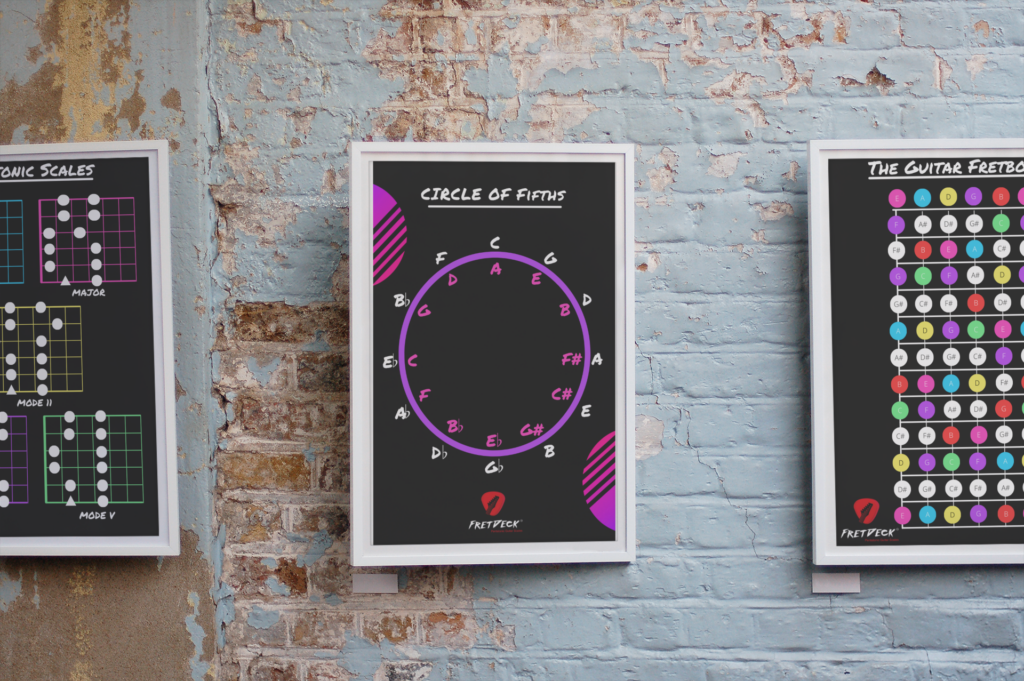For any guitarist looking to delve into the world of blues, understanding and mastering pentatonic scales is a must. These versatile scales are the backbone of countless iconic guitar solos, making them essential knowledge for any aspiring blues guitarist. In this article, we’ll dive deep into the world of pentatonic scales for guitar, exploring how to use them in a blues progression, learning them in every key, and providing unique practice ideas to help you elevate your playing to new heights.
Understanding 5 Note Scales:
Before we dive into practical applications, let’s take a moment to understand what pentatonic scales are. Pentatonic scales are five-note scales that are widely used in various musical genres, including blues, rock, jazz, and more. The beauty of pentatonic scales lies in their simplicity and versatility, making them a favorite among guitarists.
The most common pentatonic scale used in blues is the minor pentatonic scale. This scale consists of five notes and can be formed by taking the 1st, b3rd, 4th, 5th, and b7th degrees of the natural minor scale. In the key of A minor, for example, the notes of the A minor pentatonic scale would be A, C, D, E, and G.
Using Pentatonic Scales in a Blues Progression:
One of the most effective ways to use pentatonic scales in a blues progression is during improvisation. Blues music often follows a standard 12-bar chord progression, providing the perfect canvas for guitarists to showcase their improvisational skills.
When soloing over a blues progression, such as the classic I-IV-V chord progression, you can use the minor pentatonic scale corresponding to the key of the song. For example, if you’re playing in the key of A, you can use the A minor pentatonic scale to create soulful and expressive solos that capture the essence of the blues.
To add depth and emotion to your solos, experiment with bending notes, adding vibrato, and incorporating techniques such as slides and hammer-ons. The pentatonic scale serves as a foundation, but it’s your creativity and expression that will truly bring your playing to life.
Learning Pentatonic Scales in Every Key:
To become a well-rounded guitarist, it’s essential to learn pentatonic scales for guitar in every key. While this may seem like a daunting task at first, there are practical methods you can use to make the process more manageable. We have a tool called the FretDeck that can help you learn all pentatonic scales.
Start by mastering the minor pentatonic scale in one key, such as A minor. Once you feel comfortable with this scale, begin transposing it to other keys using a systematic approach. For example, if you know the shape of the A minor pentatonic scale, you can easily play the C minor pentatonic scale by moving the entire shape up three frets.
Another helpful technique is to visualize the patterns of the pentatonic scale on the guitar neck. By understanding the relationship between notes and intervals, you’ll be able to navigate the fretboard with ease and play pentatonic scales in any key.
Unique Practice Ideas for Pentatonic Scales:
Practicing pentatonic scales for guitar doesn’t have to be boring or repetitive. Here are some unique practice ideas to help you master these essential scales:
- Intervallic Exercises: Instead of playing the pentatonic scale in a linear fashion, try playing it using intervals such as thirds, fourths, and fifths. This will help you develop your ear and strengthen your understanding of the scale’s structure.
- Call and Response: Play a short phrase using the pentatonic scale, and then try to mimic it in a different position on the fretboard. This call and response exercise will improve your ability to move freely around the neck while maintaining musical continuity.
- Jamming with Backing Tracks: Practice improvising over blues backing tracks using different pentatonic scales and positions. Focus on phrasing, dynamics, and rhythmic variation to create engaging and expressive solos.
- Incorporate Chromaticism: Experiment with adding chromatic passing tones to your pentatonic licks to add color and tension to your playing. This will expand your melodic vocabulary and give your solos a unique edge.
Conclusion:
Mastering pentatonic guitar scales for guitar is essential for any guitarist looking to excel in the blues genre. By understanding how to use pentatonic scales in a blues progression, learning them in every key, and incorporating unique practice ideas, you’ll be well on your way to becoming a proficient and expressive blues guitarist.

Download The FretDeck & Pentatonic Secrets Course!
Download Our Course









